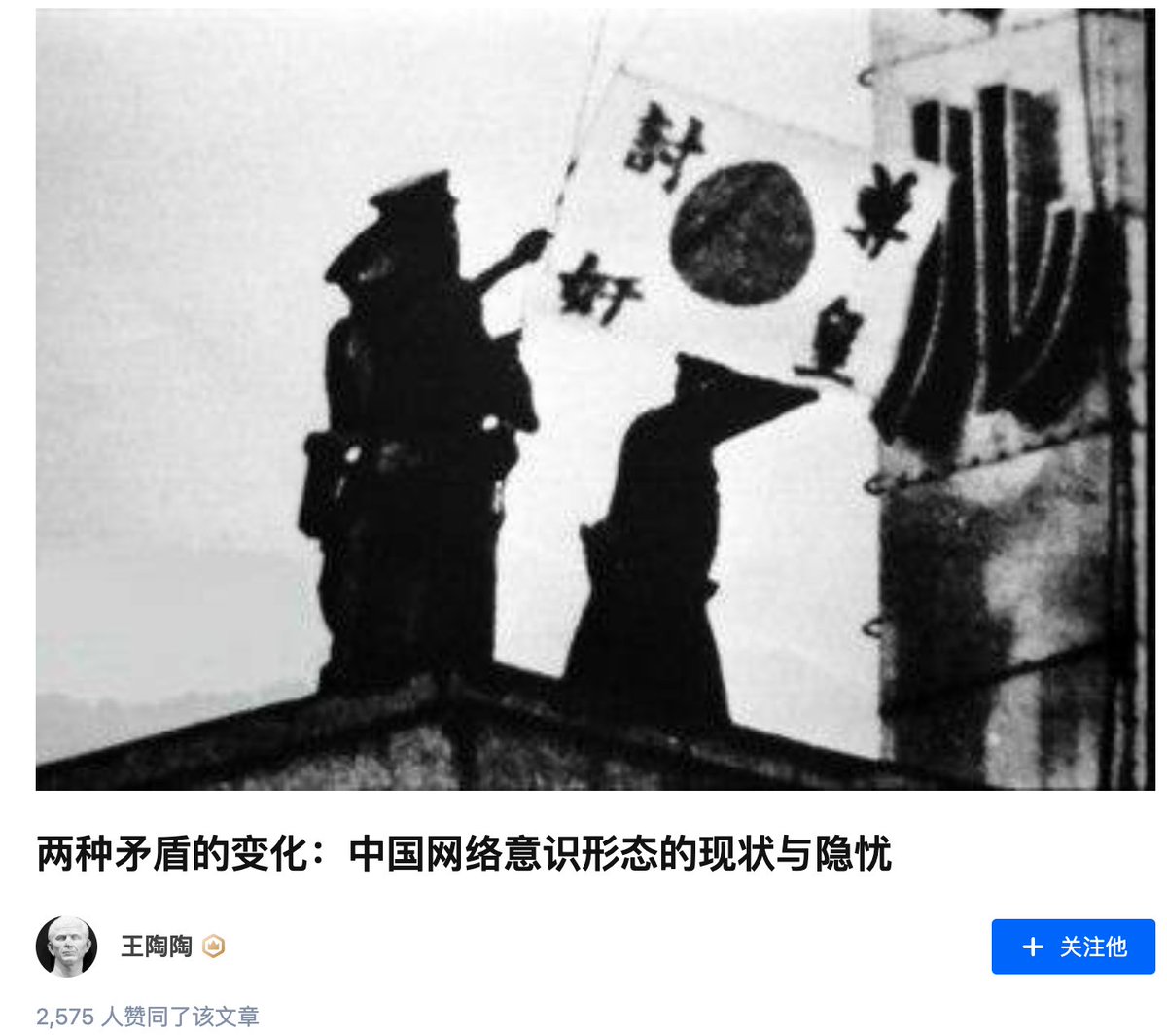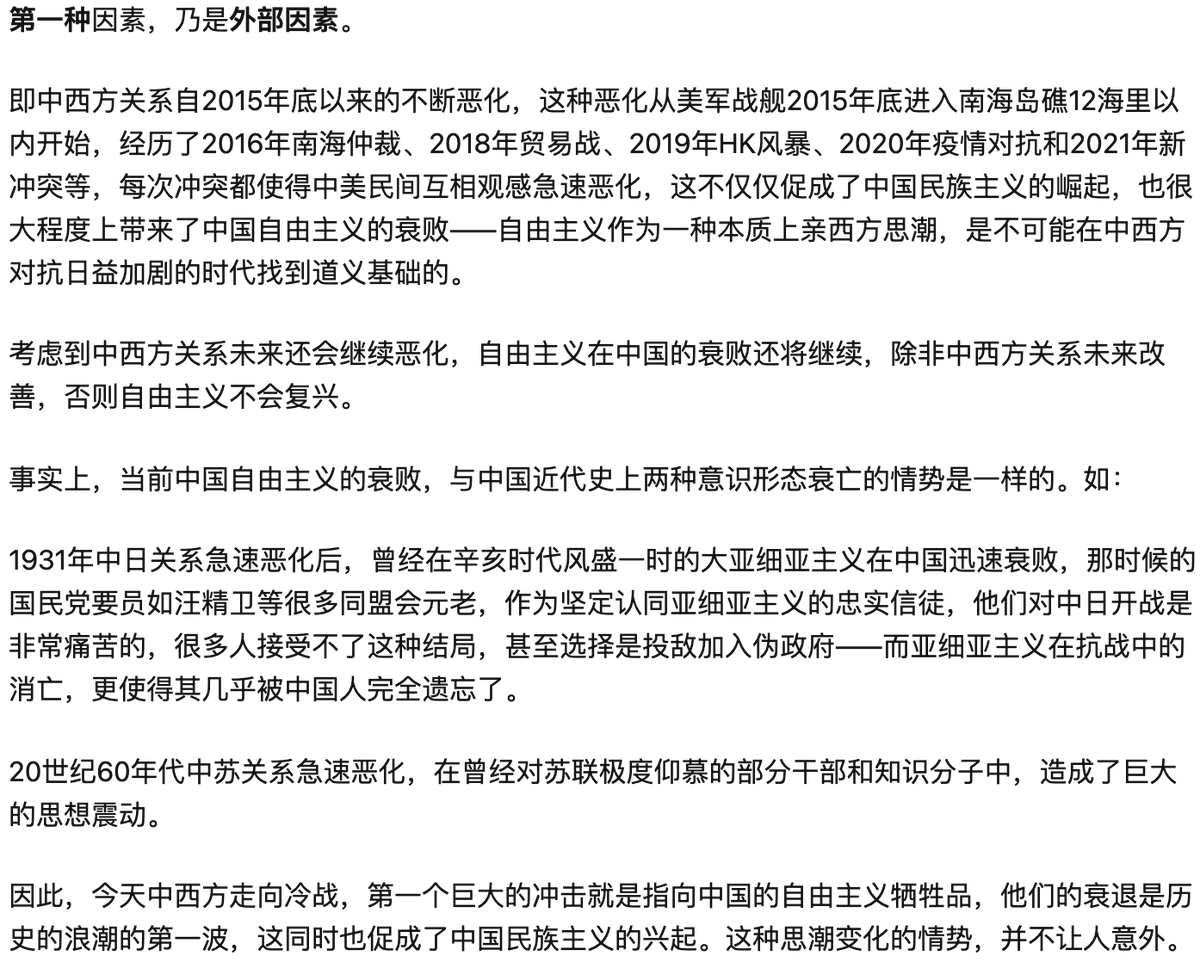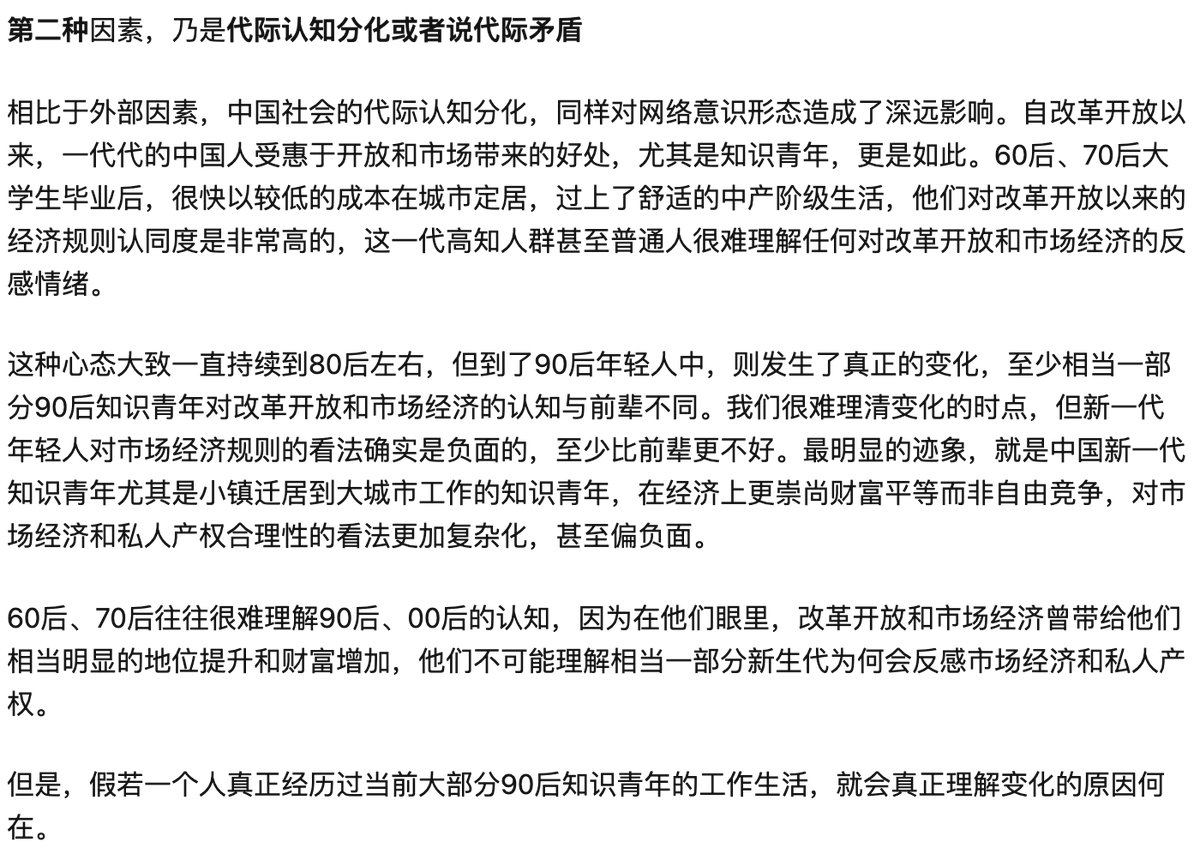
Wang Huning is described as making a "daring break from the materialism of orthodox Marxism" in the idea that social "software" shapes its "hardware." I want to say a few things about this. palladiummag.com/2021/10/11/the…
For the break from Marxist orthodoxy on economic determinism in Chinese political theory, we should go back to the 1930s, at least. Mao tells us that political and cultural changes can become crucial. This was his idea of a cultural revolution, decades before 1966. 







Culture is a reflection of politics and economics, Mao says in 1940, but the former has a "tremendous influence and effect upon the latter." Mao repeatedly argues this is not a break from Marxist orthodoxy. You can decide for yourself. It was less of a break from Lenin, for sure. 







When the political revolution was won in 1949, the effort to "eradicate the bourgeois ideology on the cultural front" could not be abandoned. This leads to the Great Proletarian Cultural Revolution of 1966—running a cultural revolution in a socialist country. 

Wang Huning in the 1980s takes on some of these ideas because they're mainstream. But he rejects the Cultural Revolution. He's also writing at a time when the echoes of the '60s are being felt in things like the campaigns against spiritual pollution and bourgeois liberalization. 

He makes that clear in "Rethinking the Cultural Revolution and Structural Reform," written on the twentieth anniversary of the Cultural Revolution, as well as "The Structure of China’s Changing Political Culture" in 1988. He rejects "leftist ideology."
He's arguing for reviving traditional, indigenous Chinese values suppressed by the ultra-left. These values provide an alternative to Western modernity, feudalism, the ultra-left, etc. Rule of law and a clear constitutional framework will protect them.
This leads to the Party going back to something more recognizably Marxist and going all-in on the idea that spiritual civilization and material civilization should be developed in concert. Wang Huning has Jiang Zemin emphasize this idea.
Culture is no longer something to inspire the masses to revolutionary acts, but becomes part of an essentially Chinese spiritual civilization that has the power to discipline and direct. Probably also under the influence of Wang Huning, this is expanded to political civilization.
That idea built up under Jiang Zemin and Hu Jintao emphasizes an essentially Chinese political culture of rule by law and rule by virtue that leads directly into the tenure of Xi Jinping. Again, Wang Huning is the common link. And he was writing about that stuff in the '80s.
Does any of this help explain a crackdown now on popular culture? Is this from Wang Huning? In a way, it reminds us of the 1980s! Look at the categories targeted in 1983: "Vulgar taste ... which does not give aesthetic enjoyment but rather makes people feel disgusted 

My own impression right now is that these various cultural moves are somewhat minor against the larger projects being undertaken. Sometimes it's to grease economic or political levels, but, mostly, it's giving people things they want. It's a conservative country.
These are very minor moves, anyways. They're mostly for show. But since political discourse in the West has been reduced to arguments over culture (and not in the Maoist sense or Maoism through Western cultural theory), they seem like a big deal to us.
This thread goes too many places. This is my conclusion: if you want to understand contemporary Chinese politics, it's a good idea to know Mao, it's a good idea to know the intellectual debates of the '80s, and it's a good idea to read a lot of Jiang Zemin and Hu Jintao speeches.
• • •
Missing some Tweet in this thread? You can try to
force a refresh










